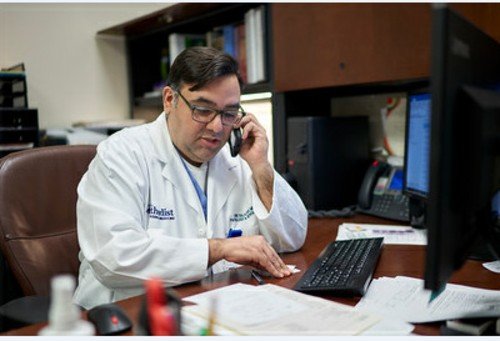Houston Methodist approved for experimental COVID-19 treatment
Houston Methodist, a part of the Houston Medical Center, has been approved by the US Food and Drug Administration to test a new therapy hoped to help treat patients suffering from COVID-19, a …
This item is available in full to subscribers.
Attention subscribers
To continue reading, you will need to either log in to your subscriber account, below, or purchase a new subscription.
Please log in to continue |
Houston Methodist approved for experimental COVID-19 treatment
Houston Methodist, a part of the Houston Medical Center, has been approved by the US Food and Drug Administration to test a new therapy hoped to help treat patients suffering from COVID-19, a statement on the hospitals website said. The treatment involves using the plasma of a recovered patient to introduce antibodies into a patient that has not recovered and the FDA expanded the trial April 3.
“Here at Houston Methodist, we have the capability, the expertise and the patient base from our health care system, and we feel obligated to try this therapy,” said Houston Methodist President and CEO Marc Boom.
Under FDA guidelines, the new therapy was initially considered an emergency investigational new drug – referred to as an eIND by medical professionals – that requires FDA approval for all patients that receive it. However, the trial was expanded into a full clinical trial, the FDA announced April 3.
“This is an important area of research — the use of products made from a recovered patient’s blood to potentially treat COVID-19 in those affected by this illness. The FDA remains actively engaged with partners across the U.S. government, academia and industry to expedite the development and availability of critical medical products to prevent and treat this novel virus – both evaluating the safety and efficacy of potential therapies and facilitating emergency access for patients, as appropriate,” said FDA Commissioner Dr. Stephen M. Hahn.
The treatment, known as convalescent serum therapy, has been used to fight diphtheria, flesh-eating bacteria, the Spanish flu and other serious conditions for more than a century, the hospital’s statement said. It uses plasma from a recovered patient with antibodies present in it and that plasma is infused into a sick patient’s body and has the potential to save lives by bolstering patients’ immune systems with already-established antibodies for the Novel Coronavirus.
The first patient to donate plasma from the study has been in good health for more than two weeks and has already donated. The plasma was transfused into a COVID-19 patient March 28. Since that time, the hospital has done four more infusions and identified 10 additional donors who have already donated, said Patti Muck, a senior media relations specialist with Houston Methodist.
A study of five Chinese patients who received the therapy was published in the “Journal of the American Medical Association” in mid-March and suggests that the therapy is beneficial to those suffering from COVID-19.
New York Governor Andrew Cuomo has said his state will begin recruitment for plasma donors soon in the New York City suburb of New Rochelle which was heavily hit by the pandemic. Methodist representatives said potential donors do not have to be Methodist patients, but must have a documented positive COVID-19 test in their medical history to be considered.
The process for donating plasma is similar to that for donating blood and takes about an hour, Methodist representatives said. Donors are connected to a device that removes plasma while returning red blood cells to the donors’ bodies. Plasma may be donated twice per week, unlike regular blood donations which the American Red Cross says can see separations of eight to 16 weeks between donations.
Locally, Dr. Eric Salazar, principal investigator at Houston Methodist's Department of Pathology and Genomic Medicine, said a review of patient charts at the hospital is promising and nearly two-thirds of the patients may meet the criteria to donate plasma once they recover. Patients with underlying conditions and of advanced age will not be eligible to donate.
While the research is just starting, Salazar said it could help many patients and fast tracking the research is worthwhile.
“Convalescent serum therapy could be a vital treatment route, because unfortunately there is relatively little to offer many patients except supportive care, and the ongoing clinical trials are going to take a while. We don’t have that much time,” Salazar said.
Keywords
COVID-19, Houston Methodist, Eric Salazar, Department of Pathology and Genomic Medicine, FDA, Food and Drug Administration, donor, plasma, antibody, donations







